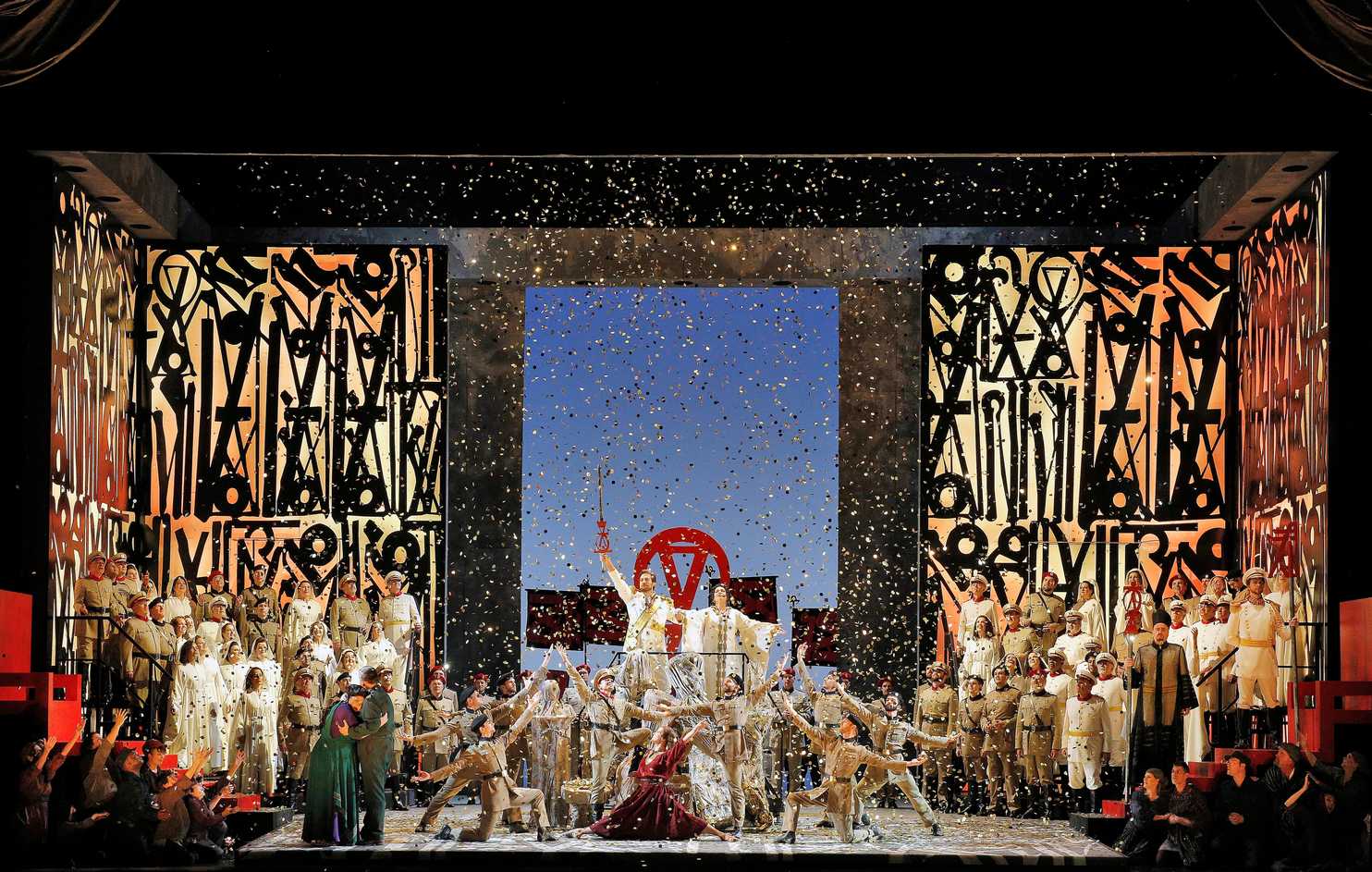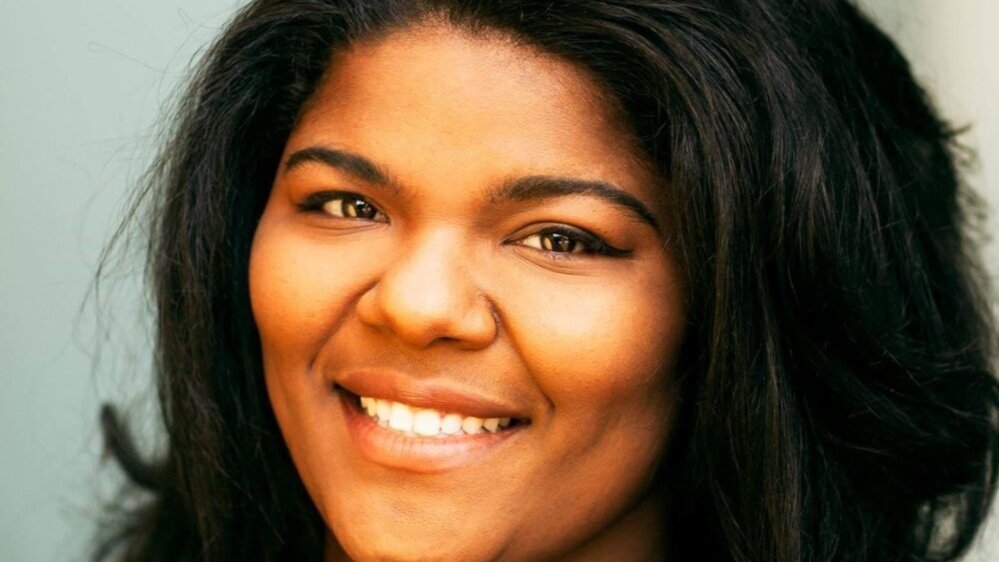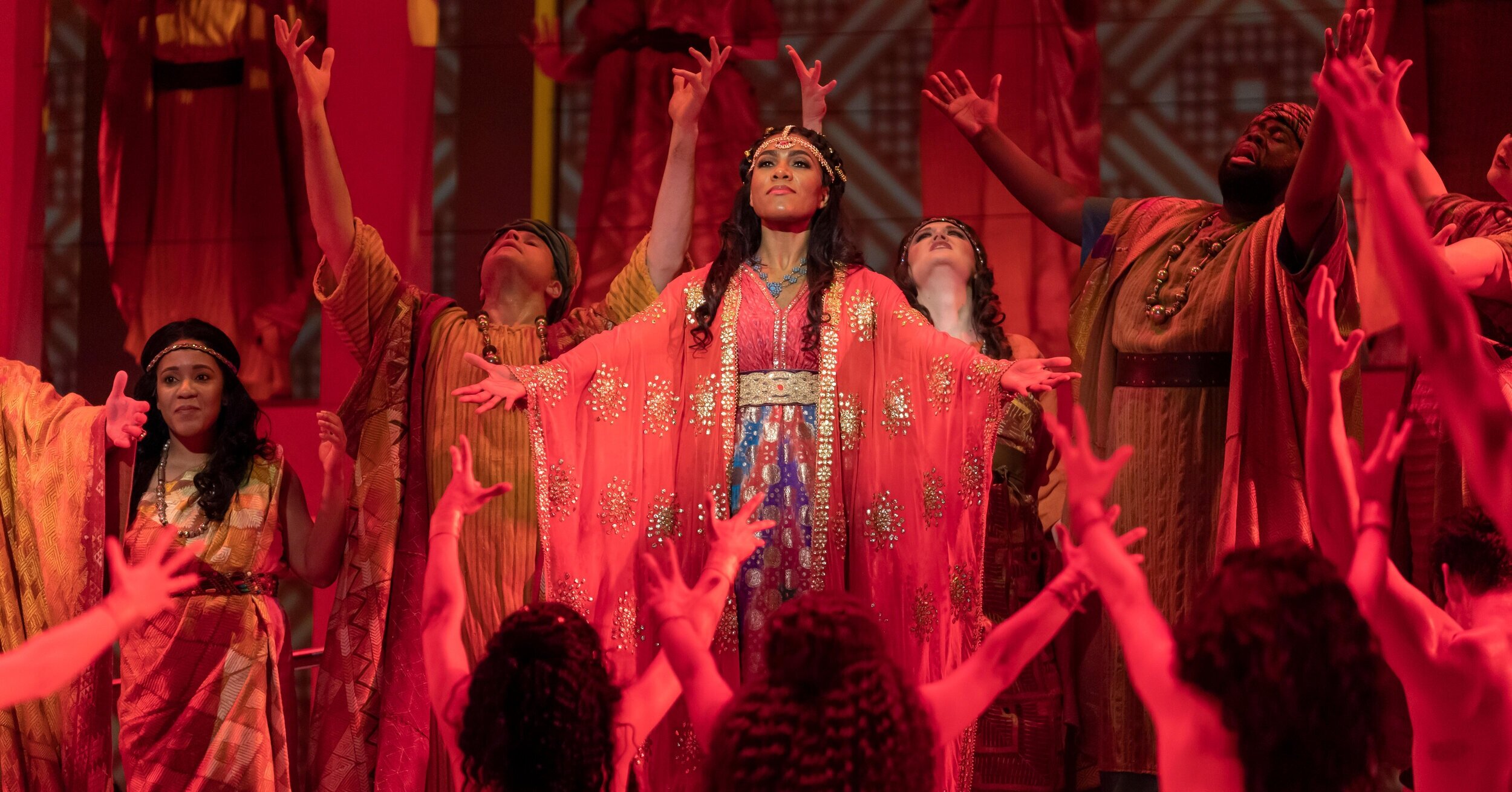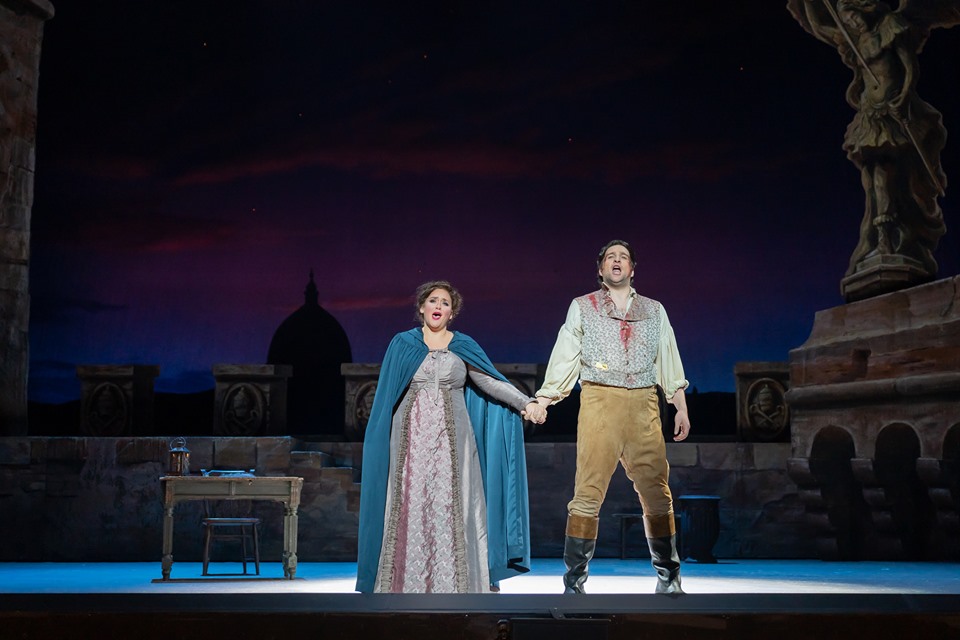Enter the Moor

WNO solves a key problem with staging Verdi’s Otello.
There’s still a long way to go.
See how they treat me?
Pity Verdi’s Otello. It ranks among the composer’s very best operas, with many enthusiasts considering it his finest accomplishment. It’s also an opera people love to complain about: it doesn’t follow Shakespeare’s text closely enough, it’s too Wagnerian, too challenging, too much this, too much that, and worst of all, has hardly anything resembling the music of Traviata, Trovatore, or Rigoletto. On top of all the historical baggage, our current moment brings its own racial, cultural, and sexual politics to bear on it in ways that can feel excruciating, including issues around blackface, casting, representations of “the other” in the performing arts, depictions of violence toward women, misogyny, and a hundred different forms of discrimination, alienation and marginalization.
But damn, the music is great, and one should be able to skip all the surrounding “issue” stuff and sit back, enjoy the music, and be moved by the drama or comedy. Forget the lecture, just get on with the show, right? Never mind the absurd inappropriateness of La fille du régiment, the racism of L'Italiana in Algeri, or the crushing misogyny and entitlement of Madama Butterfly -- we love the music too much to care.
If we have not already arrived at the point where it is unconscionable to engage with these works and not consider the issues they raise, we’re getting there quickly. While we may end up “canceling” some operas in the standard rep like La fille and L’Italiana, others need to stay and be dealt with accordingly. At the top of that list is Otello, because what better operatic prism exists through which the audience can unpack the way toxic masculinity, honor killings, and minority representation are presented in the opera house?
Only one of those issues is plainly acknowledged in Washington National Opera’s current production, which opened Saturday night at the Kennedy Center Opera House. By casting African -American tenor Russell Thomas in the title role, WNO, which is already a leader in casting singers of color, solved the easiest yet most stubbornly persistent problem with contemporary productions of Otello.
Thomas brings strengths to the challenging role - he’s a solid vocalist, with a warm, even tone and a commanding, dramatic presence on stage. Those qualities are more than most of today’s Otellos can reliably offer, but he’ll need more than that to put him in the pantheon of Jon Vickers and Placido Domingo. As he ages, if his tone grows heavier and more burnished, and he performs in well-directed productions, he might end up becoming a star through the role, which could be a mixed bag for the singer. However, apart from a sensitive, vocally resplendent performance from soprano Leah Crocetto, little in this production supported Thomas in his first American outing in the role (he’s sung it in Canada and Germany).
Certainly no help came from conductor Daniele Callegari, who seemed intent on using every opportunity at hand to shred Verdi’s most sumptuous score into scraps. Starting with the orchestra’s entrance, Callegari’s tempi were so fast they flattened out every contour of the score’s crescendoing waves, or he ladled out the music so slowly its rapturous melodies turned into mush. He proved so inattentive to the singers that at one point he stepped on the conclusion of Crocetto’s finest moment, an excellent version of the “Willow Song,” moving forward before the audience could applaud her. They rightly insisted on giving her her due, so he stopped and began again after a hearty ovation. He frequently had the orchestra at a volume where the singers couldn't be heard, which wasn’t helped by David Alden’s puzzling blocking and Maxine Braham’s choreography.
Callegari’s destruction had accomplices on the theatrical side as well: David Alden’s ham-fisted direction, which seemed overly determined to present Otello as a pathetic fool, instead of a powerful warrior that’s been fooled; Andrew Cutbush’s confusing, shadow-filled lighting; and Jon Morrell’s inexplicable costumes and lackluster sets (except for Crocetto, who looked fabulous). The raked stage and sinister shadows may have signaled a world gone off-kilter and full of shadowy intrigue, but it grew tiresome and offered little else, notably failing to provide support for the leading characters. The production originated with English National Opera as a coproduction with Royal Swedish Opera and Teatro Real Madrid, and it feels like a joint effort put together without a strong vision.
At the center of the curiously unsatisfying evening was George Gagnidze’s problematic Iago. At first, Gagnidze’s vocal power and presence signaled that although he wasn’t the title character, this was going to be his Otello. But soon it felt like he was stuck in a performance of Rigoletto, a signature role of his. His Iago had no rage, no menace, which made his actions come off as those of a sociopath, and while that may be an interesting way to approach the opera, everyone else needs to be on board with that direction, and nobody was.
The rest of the cast did capable work under the challenging circumstances: former Domingo-Cafritz Artist Deborah Nansteel, an excellent mezzo whose talents go somewhat unused here, and why was she dressed as a school marm? Towering tenor Zach Borichevsky was the unwitting Cassio, and a welcome diversion from the grimness of the affair, as was to a lesser extent tenor Alexander McKissick, inexplicably costumed as a foppish Roderigo. I’m not sure what directorial conceit justified bringing a Byzantine icon and a dancer onto the stage, but as the latter Claudia Aguero Marino was under-utilized. Perhaps because she was performing a part that doesn’t actually exist.
Crocetto, whose voice has long made her one of the premiere Verdi singers of her generation, continues to grow as a dramatic performer. She’s truly the best reason to see this Otello.
Washington National Opera’s Otello, October 30 - November 16 at the Kennedy Center Opera House.
Tickets and information here.
Photos by Scott Suchman/Washington National Opera/The Kennedy Center.






